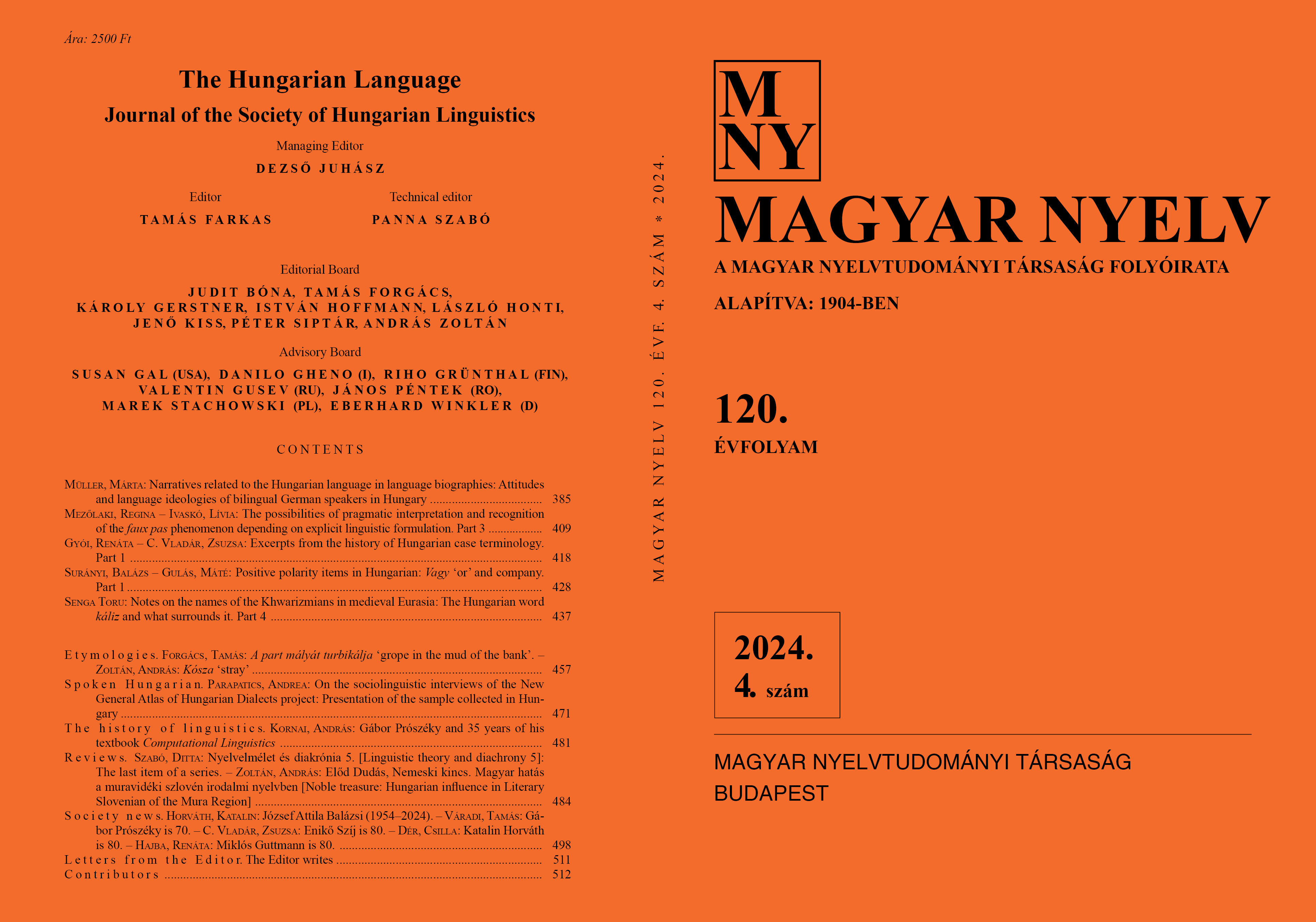On the sociolinguistic interviews of the New General Atlas of Hungarian Dialects project
Presentation of the sample collected in Hungary
DOI:
https://doi.org/10.18349/MagyarNyelv.2024.4.471Keywords:
sociolinguistics, language attitudes, language and dialect awareness, New General Atlas of Hungarian Dialects, databaseAbstract
The paper deals with the sociolinguistic interviews recorded in Hungary by the New Hungarian Dialect Atlas project. As part of a three-year research, the author analyzed the responses of the entire Hungarian sample to thirteen sociolinguistic questions. To do this, she first examined the audio archive in detail to see how the data collection was carried out compared to the work plan, i.e., at which research points, how many informants and with what background were evaluable interviews conducted. Through selection and processing, the article is the first to provide details of the sample since the end of the project in 2012, including its stratification by area, gender, age, and education. The responses of the individual participants to the questions examined in the research mentioned are contained in an enormous table that is not yet accessible – the data and answers of 600 subjects from 77 data collection sites in total. In order for the project’s sound archive (not just the data of the interviews processed so far) to be really available for use, the study emphasizes the need to create an
open access, easy-to-use and searchable database based on various criteria.
Downloads
Published
Issue
Section
License
Copyright (c) 2024 Andrea Parapatics

This work is licensed under a Creative Commons Attribution-NonCommercial-NoDerivatives 4.0 International License.
Magyar Nyelv is a Diamond Open Access periodical. Documents can be freely downloaded and duplicated in an electronic format, and can be used unchanged and with due reference to the original source. Such use must not serve commercial purposes. In the case of any form of dissemination and use, Hungarian Copyright Act LXXVI/1999 and related laws are to be observed. The electronic version of the journal is subject to the regulations of CC BY-NC-ND (Creative Commons – Attribution-NonCommercial-NoDerivatives).
The journal permits its authors, at no cost and without any temporal limitation, to make pre-print copies of their manuscripts publicly available via email or in their own homepage or that of their institution, or in either closed or free-for-all repositories of their institutions/universities, or other non-profit websites, in the form accepted by the journal editor for publication and even containing amendments on the basis of reviewers’ comments. When the authors publicize their papers in this manner, they have to warn their readers that the manuscript at hand is not the final published version of the work. Once the paper has been published in a printed or online form, the authors are allowed (and advised) to use that (post-print) version for the above purposes. In that case, they have to indicate the exact location and other data of the journal publication. The authors retain the copyright of their papers; however, in the case of an occasional secondary publication, the bibliographical data of the first publication have to be included.



